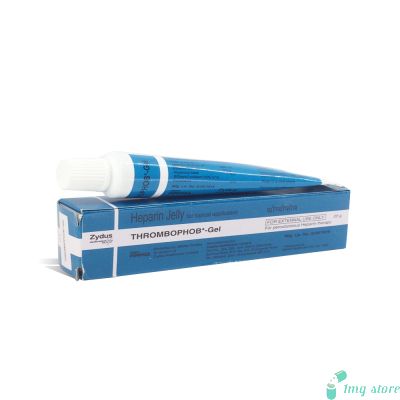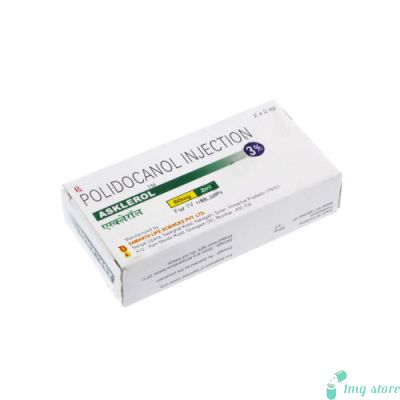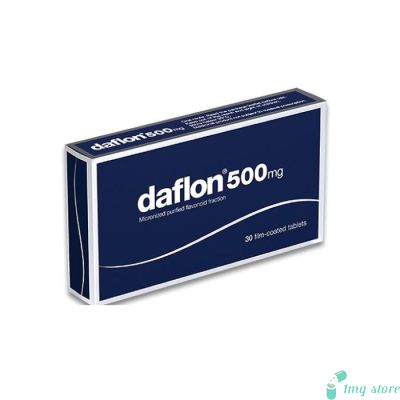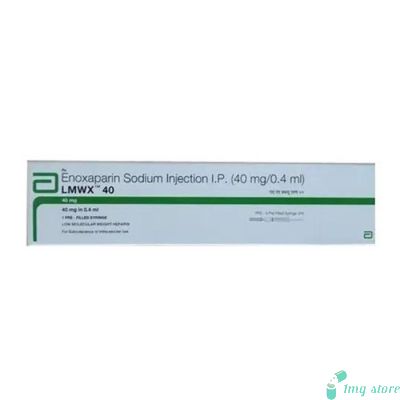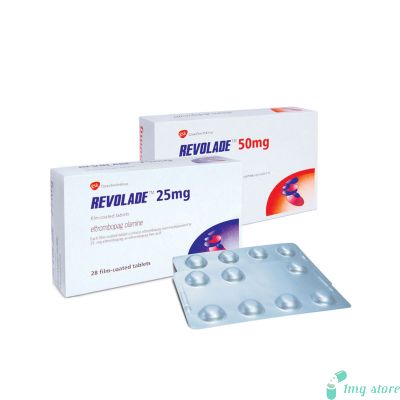Desirox Tablet (Deferasirox)
Deferasirox Tablet, available under various brand names including Desirox, Exjade, and Jadenu, is an orally administered iron-chelating agent used to manage chronic iron overload conditions resulting from transfusion-dependent disorders such as thalassemia and certain anemias.
Introduction to Deferasirox Tablets and their Variants
Deferasirox, available under various brand names including Desirox, Exjade, and Jadenu, is an orally administered iron-chelating agent used to manage chronic Iron Overload conditions resulting from transfusion-dependent disorders such as Thalassemia and certain anemias. Its mechanism of action involves binding to excess iron, allowing for its elimination from the body through urine and feces. The availability of Deferasirox in different formulations provides flexibility in dosing and enhances patient compliance.
What is Deferasirox?
Deferasirox is a pharmaceutical agent used for managing chronic iron overload conditions. It acts as an iron-chelating agent, binding to excess iron in the body and aiding its elimination. Deferasirox is available in various formulations and dosages, offering flexibility in treatment.
Dosage Information
Initial Dosage: The recommended starting dose of Deferasirox varies based on the patient's baseline serum ferritin level and weight. For patients with serum ferritin levels <1,000 mcg/L, the standard starting dose is 20 mg/kg once daily. For those with higher levels, the initial dose may be increased to 30 mg/kg.
Deferasirox 500mg Tablet:
Deferasirox is commonly available in tablet form, including the Deferasirox 500mg Tablet variant. This specific dosage allows for precise administration of the medication. The 500mg tablet is often used based on patient weight and iron burden levels, as determined by healthcare professionals.
Dose Titration: Regular monitoring of serum ferritin levels is crucial. The dose should be titrated based on response and tolerance, aiming to reduce ferritin levels while avoiding excessive iron depletion. Adjustments are typically made in increments of 5 to 10 mg/kg.
Missed Dose: If a dose is missed, it should be taken as soon as remembered unless it is close to the time for the next scheduled dose. In such cases, the missed dose should be skipped and the regular dosing schedule resumed. Doubling the dose to make up for a missed one should be avoided.
Overdose: In cases of overdose, monitoring for signs of toxicity is essential. Overdosing may lead to increased adverse effects, such as gastrointestinal disturbances, liver function abnormalities, and kidney problems. Prompt medical attention is crucial if an overdose is suspected.
Discontinuation: Deferasirox treatment should not be abruptly discontinued. Gradual tapering may be necessary under the supervision of a healthcare provider, especially if the patient's iron levels are well-managed.
Essential Safety Advice to Follow when Using Desirox Tablet (Deferasirox)
Pregnancy and Lactation: Deferasirox should be avoided during pregnancy and breastfeeding unless the potential benefits outweigh the risks. Consultation with a healthcare provider is crucial in such cases.
Pediatric Use: While Deferasirox is approved for pediatric use, special attention should be given to appropriate dosing based on the child's weight and overall health.
Renal Impairment: Patients with pre-existing renal impairment require careful monitoring and dose adjustment, as Deferasirox can further affect renal function.
Hepatic Dysfunction: Patients with existing liver conditions should be monitored closely, as Deferasirox can impact liver function. Dose adjustments may be necessary.
Combination Therapy: Deferasirox interactions with other medications, such as antacids, should be considered. Separate administration by several hours can prevent potential interactions that may decrease Deferasirox efficacy.
Deferasirox Price:
The cost of Deferasirox can vary significantly depending on several factors. These factors include the brand name (such as Desirox, Exjade, or Jadenu), the formulation (tablets or oral suspension), the dosage strength, the number of tablets per package, and the region or country in which it is purchased.
Some of the specific indications for Exjade/Desirox Tablet (Deferasirox) include
Treatment of Iron Overload: Deferasirox is primarily used for managing chronic iron overload in patients who require frequent blood transfusions, such as those with thalassemia major. By promoting iron excretion, it helps prevent iron accumulation in vital organs, which can lead to serious complications.
Transfusion-Dependent Anemias: Patients with transfusion-dependent anemias, such as myelodysplastic syndromes, can benefit from Deferasirox therapy. It aids in reducing the iron burden resulting from repeated blood transfusions.
Variants for Individualized Therapy: The availability of different formulations, such as Desirox, Exjade, and Jadenu, allows tailoring treatment to individual patient needs. This provides dosing flexibility, catering to patients' preferences and ensuring optimal adherence.
Pediatric Patients: Deferasirox has been approved for use in pediatric patients, addressing iron overload conditions in children and adolescents with transfusion-dependent anemias.
Non-Transfusion Iron Overload: In some cases, non-transfusion-dependent conditions can lead to iron overload. Deferasirox may be considered when iron accumulation poses risks to organ function.
Deferasirox for Thalassemia:
Deferasirox has proven to be an essential treatment for individuals with thalassemia, a genetic Blood disorder that leads to iron overload due to frequent blood transfusions. It helps prevent complications arising from excess iron accumulation in organs, improving the quality of life for thalassemia patients.
Crucial Side Effects to Be Observed When Using Desirox Tablet (Deferasirox)
- Gastrointestinal Distress: One of the common side effects includes gastrointestinal symptoms such as nausea, vomiting, diarrhea, and abdominal pain. These effects are usually mild and can be managed by taking the medication with food.
- Renal and Hepatic Effects: Monitoring kidney and liver function is crucial during Deferasirox therapy, as it can cause renal impairment and liver abnormalities. Regular laboratory tests are essential to detect any signs of dysfunction.
- Skin Reactions: Skin rashes and hypersensitivity reactions have been reported in some patients. Prompt medical attention is necessary if any severe skin reactions occur.
- Auditory and Ocular Effects: Rarely, Deferasirox has been associated with auditory and ocular disturbances. Patients should be monitored for any changes in hearing or vision.
- Bone Marrow Suppression: Deferasirox can lead to reduced bone marrow function, resulting in anemia, leukopenia, or thrombocytopenia. Regular blood counts should be performed to monitor for these effects.
Frequently Asked Queries About Deferasirox Tablets
Q: Can I stop taking Deferasirox if my iron levels improve?
A: It's important not to discontinue Deferasirox abruptly. Consult your healthcare provider before making any changes. Gradual tapering might be necessary to ensure stable iron levels.
Q: Can Deferasirox be used during pregnancy?
A: Deferasirox should generally be avoided during pregnancy due to potential risks to the fetus. Discuss your situation with your doctor to evaluate the benefits and risks before making any decisions.
Q: Are there any interactions between Deferasirox and herbal supplements?
A: The interactions of Deferasirox with herbal supplements are not well-studied. To ensure your safety, inform your healthcare provider about any supplements you're taking before starting Deferasirox treatment.
Q: Can Deferasirox be administered to elderly patients?
A: Deferasirox can be used in elderly patients, but individual factors such as renal and hepatic function should be considered. Your doctor will determine the appropriate dosage based on your overall health.
Q: Are routine eye and hearing exams necessary during Deferasirox treatment?
A: While rare, auditory and ocular disturbances have been reported. Although routine exams are not mandatory, if you experience any changes in hearing or vision, seek medical attention promptly.
Significant Drug Interactions that Require Attention For Desirox Tablet (Deferasirox)
- Aluminum-Containing Antacids: Concomitant use of Deferasirox with aluminum-containing antacids should be avoided due to the potential for reduced Deferasirox absorption.
- Cytochrome P450 Enzymes: Deferasirox is a substrate of CYP3A4 and CYP2C8 enzymes. Co-administration with strong CYP3A4 inducers or inhibitors can impact Deferasirox plasma levels.
- Other Chelating Agents: Simultaneous administration of Deferasirox with other iron-chelating agents should be avoided to prevent potential additive effects and increased risk of adverse events.
- Certain Medications: Medications that can potentially affect renal function or electrolyte balance should be used cautiously with Deferasirox, as they may exacerbate its effects on the kidneys.
- Food Interactions: While food can mitigate gastrointestinal side effects, high-fat meals may enhance Deferasirox absorption, potentially increasing the risk of adverse effects. Consistency in food intake is recommended.
| Manufacturer | : | Cipla Pharma, India |
| Equivalent Brand | : | Exjade |
| Generic Search | : | Deferasirox |







